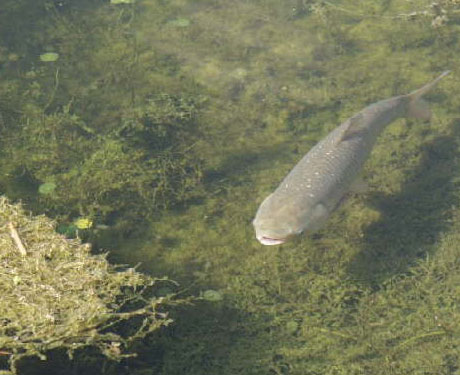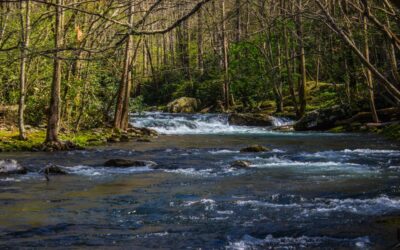Opinion article by Michael Butler, CEO of Tennessee Wildlife Federation, as it appeared in the Commercial Appeal.
What if Tennessee had the tools to effectively address the Asian carp invasion and safeguard America’s nongame wildlife species with one bill—a bill that did not raise taxes or require annual legislative battles?
It would be an absolute slamdunk for conservation and Tennessee.
In a significant step forward for wildlife, the Senate version of the Recovering America’s Wildlife Act was introduced in July by bipartisan cosponsors, including Tennessee’s Sen. Lamar Alexander. The closely aligned House counterpart was introduced in December and boasts more than 90 bipartisan cosponsors, including Representatives Kustoff, Fleischmann, and Cooper of Tennessee.
These bills are designed to fund proactive management of America’s nongame fish and wildlife to keep them off threatened and endangered species lists. This approach is proven to be more effective and cost efficient than responding after a species is on the brink.
The Senate and House versions of the Act dedicate funds to enable state wildlife agencies to implement their State Wildlife Action Plans and other activities to help imperiled wildlife. These plans are blueprints for conserving fish and wildlife. Tennessee’s identifies 1,499 plant and animal species in greatest need of conservation in the state. A significant portion of that list is made up of aquatic species, including Tennessee’s freshwater mussels.
Those mussels, of which more than 40 species are already on the federal threatened and endangered species list, currently lack sufficient and dedicated conservation funding—putting those species in a precarious position. Not only are they fighting for survival against pollution and development impacts but also against the devastating Asian carp invasion.
Asian carp—which includes black, silver, grass, and bighead species—have aggressively taken over the Mississippi River system and are quickly moving into the Tennessee and Cumberland River systems.
These fish reproduce quickly, have no natural predators, and devastate both habitats and recreational enterprises.
They also devour food native fish need such as algae, zooplankton, and aquatic vegetation. However, black carp specialize in eating snails and mussels, including dozens of species that are already imperiled.
In other words, Recovering America’s Wildlife Act could serve dual purposes: safeguarding all our nongame fish and wildlife as well as providing the means to stop Asian carp.
Fighting Asian carp is expensive and requires coordination by interstate agencies to control the invasive fish. Recovering America’s Wildlife Act could do exactly that by providing significant funding to Tennessee and the other states we must collaborate with.
With the House version of the Recovering America’s Wildlife Act, $1.3 billion dollars nationwide—$20.8 million for Tennessee—would be allocated annually. This amount was determined to adequately fund the conservation needs laid out in the State Wildlife Action Plans and similar efforts.
While the Senate bill does not currently guarantee annual funding or funding at that level, we believe the public and political support to make those changes to the bill is there. Doubly since it could be used to stop the spread of Asian carp and their devastation while restoring fish, mollusks, and other nongame wildlife.
Contact your elected officials and ask them to support the House version of Recovering America’s Wildlife Act—a bill that includes funding that is dedicated, adequate, and recurring. A bill that would be a slam dunk for Tennessee’s wildlife and waterways.
Take action quickly at tnwf.org/Recovering




